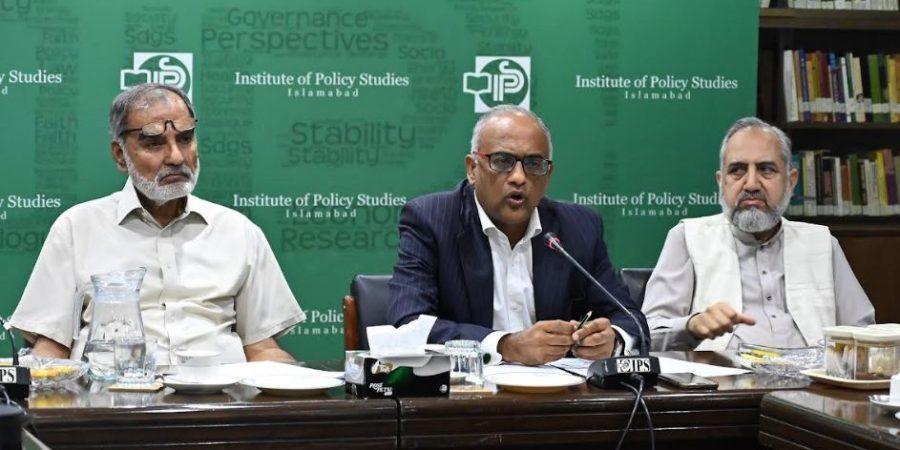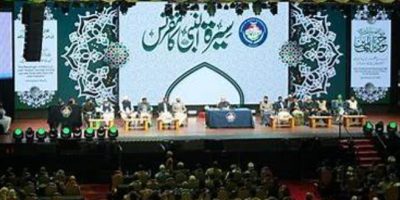Kashmir movement a continuous process as BJP, Congress uphold same policies: Experts

ISLAMABAD, JUL 29 /DNA/ – The Kashmir movement is likely to remain an ongoing process despite the slightly changed power dynamics following the general elections in India. Although the Bharatiya Janata Party (BJP) governs in coalition with other parties, both the BJP and the Indian National Congress share similar policies on foreign and domestic matters, including Kashmir.
While the Indian stance remains unchanged, various internal factors and shifts in the external environment will inevitably influence the situation over time and could act as catalysts for resolving the issue. Meanwhile, to effectively counter Indian policies, Pakistan must leverage its strengths, demonstrate long-term commitment, and adopt a strategic, multidimensional approach.
These views were expressed during the 23rd IPS Working Group on Kashmir meeting, titled ‘Third BJP Government: India’s Kashmir Policy and its Future Outlook’organized by the Institute of Policy Studies (IPS), Islamabad. The session, moderated by Ambassador (r) Syed Abrar Hussain, vice-chairman IPS, was addressed by Khalid Rahman, chairman IPS, Dr. Syed Muhammad Ali, security analyst and strategist, Dr Waleed Rasool, director Institute of Multi-Track Dialogue Development & Diplomatic Studies, Dr Raja Sajjad Muhammad Khan, director Kashmir Policy Research Institute, Iftikhar Gillani, Ankara-based Kashmiri journalist, and Farzana Yaqoob, former minister of AJK and IPS research associate.
The discussion emphasized the need for sustained efforts to counter India’s consistent policy of dominating occupied Kashmir, despite the BJP’s apparent weakened position after the elections. Recently, the Indian government has shifted administrative powers from the chief minister to the lieutenant governor to facilitate legislative changes. This move, made in anticipation of the legislative assembly elections expected in September 2024, is part of India’s strategy to secure de jure authority over Kashmir.
However, Kashmiris must remain resilient in their cause for self-determination. The significant increase in voter turnout in Kashmir – from 19.6% in 2019 to 50.86% in 2024 – reflects the use of voting as a means of survival and resistance. Additionally, the current plight of Muslims in India serves as a cautionary example for Kashmiris not to see their future with India.
The speakers emphasized that the impact of the BJP’s policy to assert control over occupied Kashmir has become increasingly apparent over time. Indian policies seek to manipulate the Kashmiris’ goal of self-determination by making it seem unachievable, making them feel ignored internationally, and distorting their mindset toward accepting Indian dominance. Delhi also misleads Kashmiris into believing that their future lies with India and pressures pro-India Kashmiri parties to align with Indian policies. Furthermore, India fabricates media narratives to portray Pakistan as unable to support Kashmiris and to discredit the legitimacy of their struggle. Its strategy includes punishing resilience and using media to reinforce its narrative.
Pakistan must adopt a comprehensive and multi-dimensional approach to counter Indian policies on all fronts, including legal, social, political, economic, security, diplomatic, diaspora, ideological, intellectual, and historical. This includes leveraging AJK’s legal standing in international forums, mobilizing Kashmiri youth to build a supportive narrative, and engaging young political activists to sustain hope and unity. Highlighting Indian atrocities, utilizing multilateral forums, and mobilizing the diaspora are also essential. Additionally, Kashmir’s soft power should be harnessed through literature and film, and historical data on Indian abuses should be meticulously compiled. Pakistan’s strategy should address global, regional, domestic, and resistance-focused dimensions to effectively advance the Kashmir issue.
In his concluding remarks, Khalid Rahman said that a multidimensional approach is crucial for effective policy-making in AJK and for Pakistan to play a strong international role. He stressed the importance of rekindling national Kashmiri sentiment and fostering hope, arguing that a focus on strengths rather than weaknesses is essential to overcome challenges. Rahman underscored that Pakistan must maintain a proactive stance to navigate the evolving geopolitical landscape.
Related News

IBU holds International Conference on Seerat-un-Nabi (P.B.U.H)
BAHAWALPUR, Feb 4: The 11th International Conference on Seerat-un-Nabi (Peace Be Upon Him), organized byRead More

Hajj 2026 preparations progressing on time, pilgrim services improved: Religious Minister
ISLAMABAD, Feb 4 /DNA/ – Federal Minister for Religious Affairs, Sardar Muhammad Yousaf, on WednesdayRead More


Comments are Closed